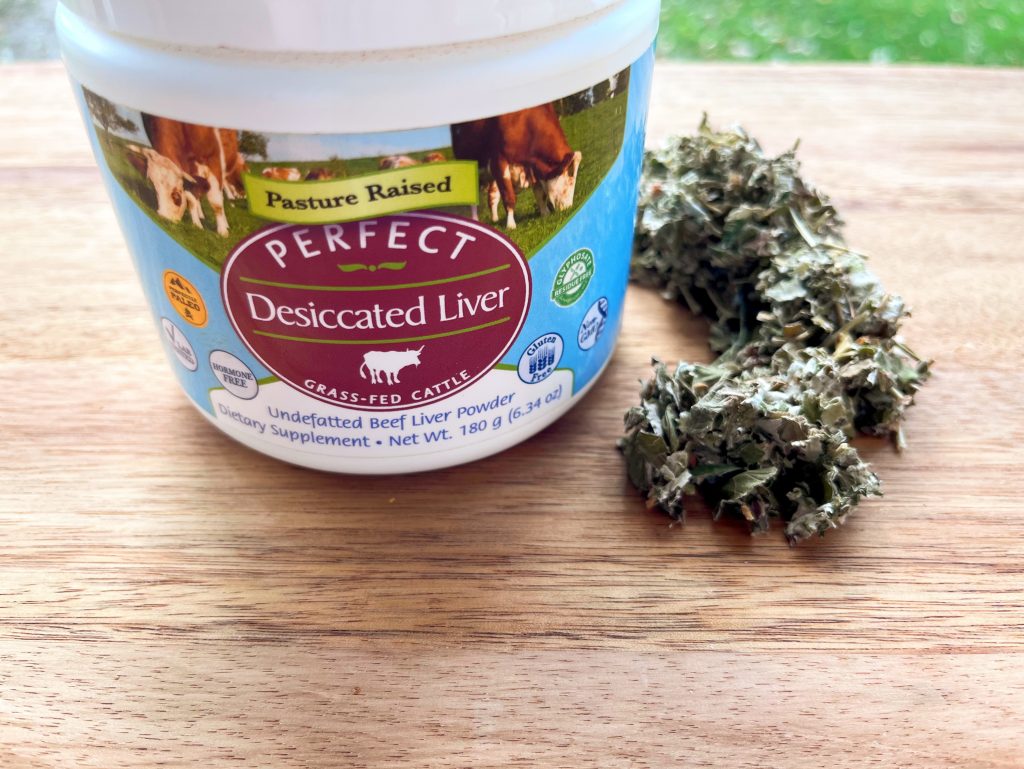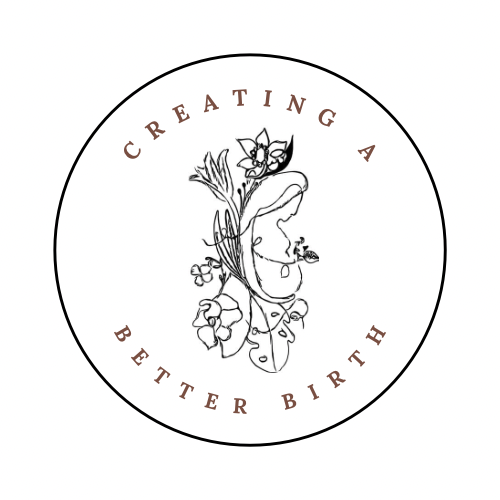
Around 50% of pregnant women struggle with a diagnosis of pregnancy anemia. It doesn’t matter how well you eat before pregnancy, how healthy you are, or how many prenatals you take, you could still end up with low iron levels at some point in your pregnancy. Fortunately, there are many natural ways to restore this important mineral. Let’s go over a few different solutions for your iron issues.
What is low iron or anemia?
There are many different types of anemia, but the most commonly known type is caused by low iron levels. Your blood levels double during pregnancy, and this can cause a lack of healthy red blood cells throughout the body. This, in turn, can affect how well oxygen is being delivered throughout your body. Having anemia can make you feel weak, lightheaded, dizzy, short of breath, fatigued, and cause cold hands and feet. You may also experience brain fog and an irregular heart rate. None of these symptoms are fun to deal with, and it’s very important to try to reverse anemia so your body doesn’t struggle in these different ways.
Why is iron so important?
Your body doesn’t produce iron on its own, it relies on food and vitamin sources to maintain healthy levels. Your body uses iron to make hemoglobin (the proteins in red blood cells that carry oxygen from the lungs throughout your body) and myoglobin (which carries oxygen to your muscles, your brain, and your body’s tissues). The transportation of oxygen throughout your body helps maintain healthy organ function, as well as the development and growth of your muscles.
The same goes for your baby when you’re pregnant. During pregnancy, iron plays a significant role in supplying enough oxygen to your placenta and your baby. It also is essential to the health of your baby’s organs as they develop. Your baby is growing by leaps and bounds every single day. They need certain vitamins and minerals to maintain that healthy growth. Iron is one of the essential nutrients needed for proper growth and the maintenance of your pregnancy.
What are some causes of anemia during pregnancy?
There are several factors that contribute to your body being anemic during pregnancy.
- Excess bodily fluids. Many women carry around extra bodily fluids during pregnancy. This extra fluid can actually deplete your red blood cell count and contribute to your anemia issues.
- High blood volume. As mentioned earlier, pregnant women have around 25 to 50% more blood running through their veins. Sometimes you can have more blood with less blood cells, therefore, more iron is needed to add those extra blood cells back in.
- Being pregnant with multiples. If you’re carrying more than one baby or your pregnancies occur close together, you’re usually at higher risk for developing anemia.
- Morning sickness. When you don’t feel like eating because of nausea, your blood cell count can be affected. This issue is further exasperated when you add in frequent vomiting to the mix.
- Being vegetarian. Animal protein is one of the richest sources of iron. Cutting out red meats can contribute to low red blood cell count. The same is true for women who are not vegetarian, but have an aversion to red meat while pregnant.
How much iron do you need during pregnancy?
As a blanket rule, pregnant women require arounds 27 mg of iron each day. It is important to discuss how much iron you specifically need with your healthcare provider. Every person is different, some people may need more while others may be getting too much. Too much iron can result in constipation, fatigue, weakness, brain, fog, and even organ damage. Your healthcare provider can help you establish how much your body requires.
What type of iron do you need?
There are two different types of iron. Heme and nonheme. Heme iron is found in poultry, red meat, and seafood. Nonheme iron is found in plant-based foods, such as beans, spinach, and lentils.
Both of these types of iron are beneficial. However, nonheme is harder for the body to absorb, therefore nonheme should be relied on less. Nonheme is the type that most iron supplements contain. Many iron supplements are hard to digest, and are poorly absorbed into your bloodstream. Because of this, some of these supplements can contribute to nausea. Which is not great if you’re already nauseous during pregnancy. Therefore, it’s usually wisest to get your iron in through your diet rather than a pill.
What foods inhibit iron absorption?
- Tannins and excess calcium can inhibit your body’s ability to absorb iron by around 50%.
- Phytates and polyphenols (typically found in some greens, beans, some fruits, berries, nuts, spinach, legumes, broccoli, and cereals) can affect your body’s ability to properly absorb and use iron.
This is why it’s so important for you to discuss all of this with your doctor. It is obviously very important for you to consume fruits and vegetables while pregnant. You shouldn’t be cutting out any food group without help deciding how to do it. Your doctor can help you decide how to best to go about adjusting your diet to fit your pregnancy needs.
Foods that make you less anemic
- Red meat is one of the highest and most bio available sources of heme iron. Ground beef contains around .6 mg per ounce, and beef liver contains around 1.4 mg per ounce. That’s a lot of iron! It is possible to get around .8 mg per ounce of spinach, but don’t forget that this iron is harder to absorb because it’s the nonheme kind. Eating beef instead of spinach is better absorbed by your body, causing you to not have to eat as much. If you can’t stomach the thought of eating beef liver (which is super high in iron), you can try these freeze dried beef liver pills (code cbb10 for 10% off). These are very high in bioavailable iron and have no taste.
- Another great option is chlorophyll. Chlorophyll is the green pigment plants that helps the plant absorb nutrients. Chlorophyll is also very beneficial to people as it increases our blood oxygen levels. You can purchase liquid chlorophyll, or you can consume it by eating alfalfa, wheat grass, broccoli, Matcha tea, and green cabbage. Remember to run this method of getting iron in by your medical provider and mention that these sources are nonheme.
- Molasses is very high in iron. Just 1 tablespoon contains .9 mg! If you need to sweeten something you’re eating or drinking, try using molasses drizzled over your warm biscuit or to substitute the honey in your tea. Molasses is also high in potassium, vitamin B6, and magnesium. Which are all important during pregnancy as well!
- This isn’t a food, but you do use it when cooking! Cooking food in a cast-iron pot or skillet can actually increase the iron levels in your food by up to 16%. It also makes foods with nonheme iron more easy to absorb. So if you’re only able together your hands on spinach and beans, try cooking them in a cast iron skillet!
Food sources for iron support
- Nettle tea. Use nettle tea with caution as it could possibly stimulate your uterus to contract. Some women prefer to only use it in the last few weeks of pregnancy because of this issue. Everyone responds to certain things differently, and nettle tea is no exception. Some women may experience contractions, while others won’t be affected at all. Stinging nettle tea can help strengthen your blood vessels. Stronger blood vessels are less likely to become damaged and bleed. Some women have found that drinking nettle tea in the last few weeks of pregnancy helps prevent excessive bleeding during their delivery. This can help prevent you from being anemic during postpartum as well. If you don’t lose a lot of blood while delivering, you’re less likely to suffer from blood loss during postpartum. Nettle tea is great for supporting your iron levels once they have been raised.
- Vitamin C. If you are only able to stomach iron from nonheme sources, consider upping your vitamin C intake. Vitamin C increases iron absorption from nonheme plant sources.
In conclusion,
Being anemic while you’re pregnant can seem overwhelming and discouraging, but there are many ways that you can reverse your low iron diagnosis and help you feel much better! So many of these suggestions are completely natural and versatile. Just don’t forget to run the suggestions by your doctor or midwife before using them, they can help you adjust things to fit your specific needs.
Disclaimer: All content and media on the Creating a Better Birth website is created and published online for informational purposes only. It is not intended to be a substitute for professional medical advice and should not be relied on as health or personal advice. Always seek the guidance of a qualified health professional with any questions you may have regarding your health or a medical condition. Never disregard the advice of a medical professional, or delay in seeking it because of something you have read on this Website.
If you think you may have a medical emergency, call your doctor or call emergency services. If you choose to rely on any information provided by Creating a Better Birth, you do so solely at your own risk.
